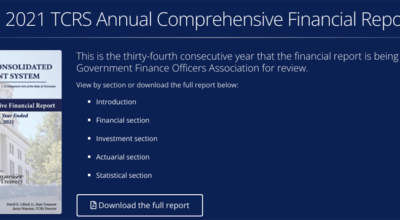



CHATTANOOGA, Tenn., Dec. 28, 2022 — Traffic cases and their abuse by police are often secured in favor of Jim Crow and state control by the use of presumption upon the poor soul accused of “driving on revoked” or “driving on suspended” or “light violation” — the type of charge that lands many in jail.
By David Tulis / NoogaRadio Network
That poor soul ends up in Silverdale on a single charge, invariably reported in the local Chattanoogan.com as “DRIVING ON REVOKED, SUSPENDED OR CANCELLED LICENSE.”
An essential element of the criminal case is “driving,” or using a car, truck or motorcycle in commerce for private profit and gain — as a carrier. A carrier is paid to move people or cargo for pay, for hire and private profit and gain.
The element is never charged, and defendants generally don’t use it in defense. Toooo bad.
Presumption of law controls the prosecution. It saves the cop (or the assistant district attorney assigned to pester you) trouble and work. And because we don’t understand presumption, we fail to ask the right question. The officer, if put on the stand in the Hamilton County sessions court “hearing” or trial, is not tested as to the evidence he has proof of the driving — or commerce — element in the case.
So, presumption of commerce stands. The legal nut is not cracked, much less given a squeeze, whether by cop, ADA or the judge. It’s up to us to understand presumption, the soft webbing and quickstand, and get ourselves upon solid rock, sure legal ground.
Defeating presumption
You might think I’m going into the weeds for my proofs and illustrations. Not at all. I’m reading TennJur, short for Tennessee Jurisprudence. The chapter on “automobile” is 317 pages long, and a long section deals with owners, duties and liabilities. What is the use of the car at the moment of a accident or legally significant act?
Presumption operates strongly in court cases about accidents and whether the driver or person in control of the car was an agent — at the time of the crash — of the owner of the car, or the employer.
➤ The common law rule is that a prima facie case of respondeat superior, or the relation of the master and servant, may be made by showing that the defendant was the owner of the offending vehicle, that such vehicle was being operated by the person generally employed by the defendant as his servant and that, at the time of the accident, such vehicle was being operated under the conditions resembling those which normally attend its operation in the defendant’s business. Jones v. Agnew, 38 Tenn. App. 427, 274 S.W. 2d 821 (1954)
➤ Where the employee stopped at the cafe for a couple of hours, became intoxicated and caused the accident while driving the employer’s truck, the truck was not being used under the conditions normally attending its operation in the employer’s business so as to make the common law inference permissible that the employee was acting within the scope of his employment. Caldwell vs, Adams, 51 Tenn. App. 373, 367 S.W.2d 804 (1962).
➤ What if a drunk employee is following the course of travel he normally uses? The answer: Where the employee when he caused the accident in driving his employer’s truck was so intoxicated he was incapable of resuming the master’s business, there was no permissible inference, from the fact that the accident occurred on the route he normally would have taken to his employer’s business, that he had left the frolic of his own and had resumed the business for his employer. Caldwell v. Adams, Id. p. 367
➤ Notice how presumption is “displaced, as a matter of law” in this case, summarized by T.C.A. as follows: The presumption, or prima facie case, of respondeat superior created by proof of ownership of the automobile involved in the accident is displaced, as a matter of law, by material evidence to the contrary of the presumed fact (i.e. operation of the automobile in defendants service), where such evidence is uncontradicted and comes from witnesses whose credibility is not in issue; however, if the witness offering the evidence in rebuttal of the presumption is contradicted on any material point, the trial court may not hold, as a matter of law, that the statutory presumption has disappeared and direct the verdict, but must permit the jury to decide if the witnesses’ testimony overcomes the presumption. Yellow Cab, Inc., v. York, 58 Tenn. App. 177, 427 S.W.2d 854 (1967). See T.C.A. 55-10-311.
➤ The presumption under the statute providing that proof of the ownership of the automobile involved in an accident shall be prima facie evidence that the automobile was being operated and used with the authority, consent and knowledge of the owner is not dispelled, as a matter of law, for the purpose of directing a verdict, by the introduction of evidence contrary to the fact presumed, unless such evidence is uncontradicted and comes from a witness whose credibility is not in question. Sadler vs. Draper, 46 Tenn. App. 1, 326 S.W.2d 148 (1959).
➤ An offer of uncontradicted and unimpeached evidence in rebuttal of the presumption, under the statute providing that proof of the ownership of the automobile involved in the accident creates a prima facie case that the automobile was being operated by the owner or by his servant in his service, causes the presumption to disappear. Haggard vs. Jim Clayton Motors, Inc. 216 Tenn. 625, 393 S.W.2d 292 (1965)
So, what’s the point
The point of these summaries is that evidence rebuts presumption, evidence that is uncontradicted, unimpeached, credible, material.
Remember, we’re in court on a traffic ticket. The presumption of the officer is that you are an employee, serving the owner of the car in business, and that you are carrying goods or people for hire. The entire police-state apparatus runs on this presumption. Cops don’t know the underlying legal requirements. Not even troopers, the sole body of people authorized to stop commercial traffic without probable cause simplify to check a driver’s license (T.C.A. 40-7-103). They don’t know what to ask for either, it appears.
Local deputies and city cops, I argue, don’t have Title 55 authority generally, except where specific provisions are adopted by the city corporation. Much of traffic enforcement is legal poaching, operating upon the legal turf of other parties. It is police opportunism to generate business for courts and evidence justifying the job and the payroll expense on taxpayers.
Case turns on the dumb questions
You defeat presumption by asking questions such as the following:
➤ Do you have evidence that you can testify to that you obtained in our encounter a bill of lading?
➤ Do you have evidence that you can testify to that you obtained in our encounter a bill of waylading?
➤ Do you have evidence that you can testify to that you obtained in our encounter a contract for service?
➤ Do you have evidence that you can testify to that you obtained in our encounter an employment contract?
➤ Do you have evidence that you can testify to that you obtained in our encounter a passenger list?
➤ Do you have evidence that you can testify to that you obtained in our encounter a manifest?
With no evidence of commerce, the case fails to establish for the basis of saying you are driving or operating a motor vehicle.
The officer, invariably, will say no. The defendant demands the case be dismissed, because the accuser and the witness have no evidence of the act of driving and operating, which is an essential element in the criminal case, one turning on presumption.
This 20-page legal notice lets you fight back vs. illicit ‘traffic stops’ — sue for damages, have defense in your criminal case
http://s6.voscast.com:7162/stream David show live 7A, repeating 6P weekdays


Because we live and breathe, it is impossible for any hired – thug (cop) of the municipal corporation to have authority / jurisdiction, over us, or even with regard to us.
This is the fundamental fact of being alive within one of the Republic states of America, like Tennessee. Unless that hired thug has evidence that we committed a crime. Jail is a criminal punishment for a civil infraction, where the citizen only touched the center-line of the public-right-of-way with a tire. No matter what the hired thug presumes to smell.
Jurisdiction/authority can not be Lawfully presumed, there must be evidence.
When a hired thug has none, any charges he/she may make are necessarily void.
Also, when the hired thug is merely presuming that you are licensed to drive, he/she is without any authority/jurisdiction with regard to you, and can only presume that you were in the commercial activity of “driving,” or being a “driver.” Only one with a license to do “driving” can be a “driver.”
Courts operate on evidence, and when the only evidence is that you are not a licensed driver, you can not be convicted of being a “driver”.
This has been proven time and again in the corporate courts of Hamilton county Tennessee and Walker/Catoosa counties in Georgia that operate outside of American law, and simply presume that you must be some sort of criminal, because you are alive within a Republic state of a free country.
Plus, if it is some sort of a crime to not register (gift) your mobile property to the fictional state, or refuse to get a license to drive in commerce, where are the convictions for that?
I have two indictments for that, and not nary one conviction, since the fictional state has no evidence that I am within IT’s authority/jurisdiction, which I am not.
Without such evidence, license, registration, forced insurance. I am rightfully, at Liberty, within a free country.